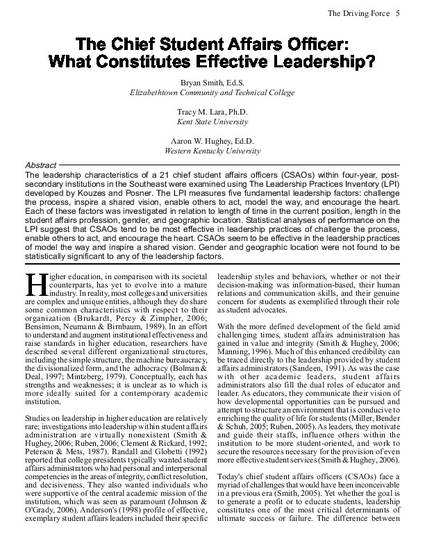
The leadership characteristics of a 21 chief student affairs officers (CSAOs) within four-year, postsecondary institutions in the Southeast were examined using The Leadership Practices Inventory (LPI) developed by Kouzes and Posner. The LPI measures five fundamental leadership factors: challenge the process, inspire a shared vision, enable others to act, model the way, and encourage the heart. Each of these factors was investigated in relation to length of time in the current position, length in the student affairs profession, gender, and geographic location. Statistical analyses of performance on the LPI suggest that CSAOs tend to be most effective in leadership practices of challenge the process, enable others to act, and encourage the heart. CSAOs seem to be effective in the leadership practices of model the way and inspire a shared vision. Gender and geographic location were not found to be statistically significant to any of the leadership factors.
Available at: http://works.bepress.com/aaron-hughey/7/

The published version of this article appears in KCA Journal (Kentucky Counseling Association), v.28, no.1 (October 2009): 5-14. Posted with permission.